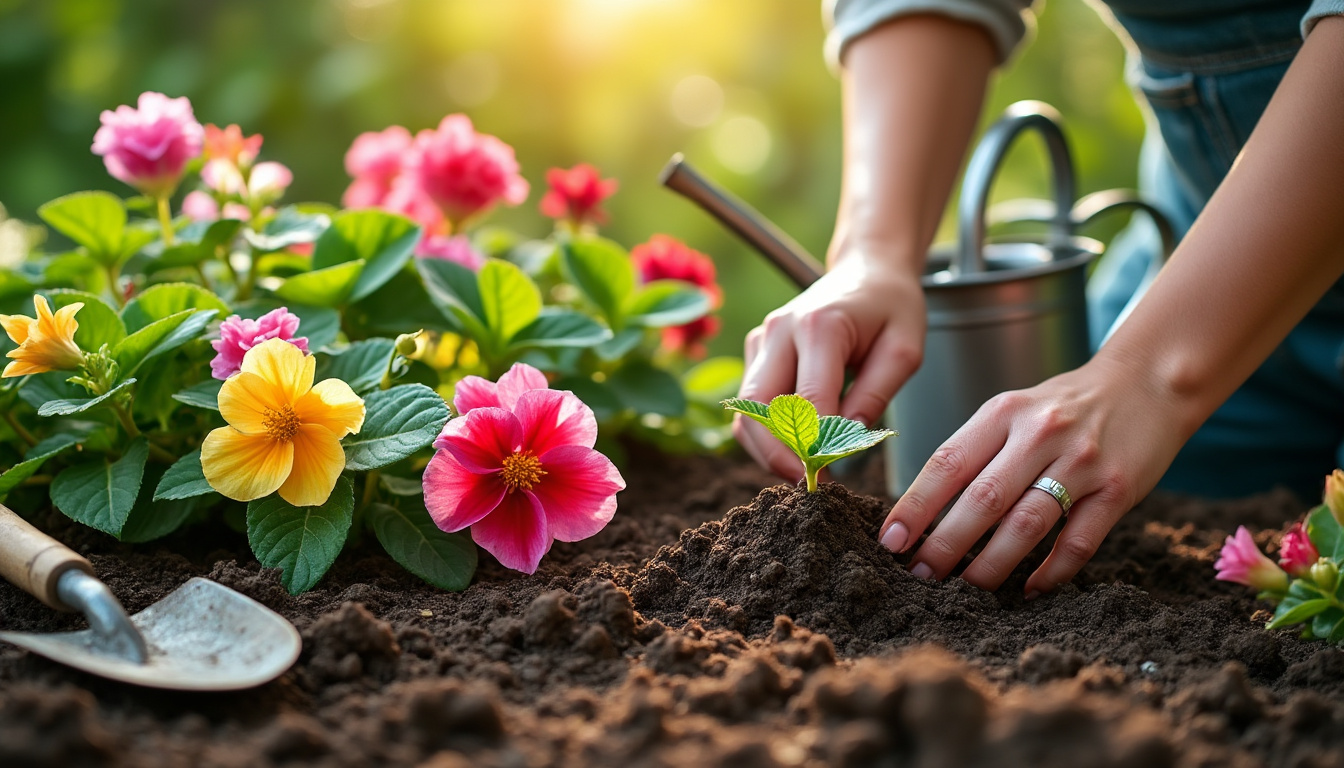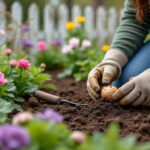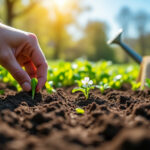Determining the ideal time to plant begonia tubers is vital for achieving vibrant blooms and healthy growth. Various factors come into play, including regional climate, soil temperature, and the specific type of begonia. Understanding these elements ensures that gardeners can provide optimal conditions for their begonias to thrive, resulting in a colorful display of flowers. This guide will explore the best practices for planting begonia tubers and nurturing them through their growth cycle.
The Best Time to Plant Begonia Tubers for Optimal Growth
Typically, the right time to plant begonia tubers is during the late spring to early summer, which coincides with the soil temperature reaching at least 60°F (15°C). Planting during this period allows the tubers to take advantage of increasing daylight hours, crucial for their establishment and growth.
Understanding Regional Differences in Planting Times
Timing can vary significantly based on regional climates. In areas with milder winters, such as zones 9-11, gardeners may successfully plant begonias in early spring or even in the fall. Conversely, in regions prone to frost, it’ll be essential to postpone planting until after the last frost date. Typically, this means waiting until late April or early May for most temperate zones.
| Region | Planting Timing |
|---|---|
| Cold Climates | Late Spring (after frost) |
| Moderate Climates | Early Spring |
| Mild Climates | Early Spring or Early Winter |
Temperature is a crucial factor, as begonias flourish in the optimal range of 65°F to 75°F (18°C to 24°C). Regular monitoring of soil temperature is recommended to ensure timely planting. Gardeners can stake their success on resources such as Eden Brothers and Parks Seed for climate-appropriate tips.
Preparing the Perfect Environment for Begonia Growth
Before planting, proper soil preparation is essential. It’s advisable to test soil pH, aiming for a level between 6.0 and 7.0. Additionally, creating a well-draining mix with organic materials ensures healthy growth. Tools and tips provided by sources like Gardener’s Supply Company can be invaluable in this process.
Influence of Humidity and Sunlight on Planting Time
Besides temperature, humidity plays an integral role in the success of begonia cultivation. Begonias prefer environments with humidity levels above 50%. For regions experiencing low humidity, frequent misting or the use of a humidifier may create ideal conditions. Furthermore, begonias need at least 12 hours of indirect sunlight daily for optimal blooming. Choosing the right location for planting, be it a sunny patch or a strategically placed container, can drastically affect the success of the blooms.
Common Planting Mistakes to Avoid
While planting begonias, avoiding common pitfalls can significantly enhance chances for success. One frequent error is planting too early. Gardeners should patiently wait until soil conditions are suitable. Additionally, overwatering can lead to root rot; therefore, maintaining moisture without saturating the soil is crucial. Careful monitoring can prevent these mistakes from derailing growth.
Post-Planting Care: Tips for Continued Success
After planting, attention to detail continues to be key. Regular watering, fertilizing with a balanced mixture, and pruning dead leaves will encourage robust growth and flowering. Utilizing fertilizers from trusted brands like Burpee can help gardeners provide the necessary nutrients for vibrant blooms. Furthermore, pests and diseases should be promptly addressed to maintain plant health.
When to plant leeks for a successful harvest
Frequently Asked Questions
When is the best time to plant begonia tubers?
The best time to plant begonia tubers is typically in late spring when soil temperatures have warmed up and the risk of frost has passed.
What kind of soil is best for begonias?
Begonias prefer well-draining, slightly acidic to neutral soil with a pH level ranging from 6.0 to 7.0. A mix of organic matter and perlite is ideal.
How often should begonias be watered?
Water begonias regularly, ensuring the soil remains moist but not saturated to avoid root rot.
Can I plant begonias in containers?
Yes! Container gardening for begonias allows flexibility with location and conditions, and they can thrive well if cared for properly.
Are there any specific brands recommended for purchasing begonia tubers?
Some reputable brands include Jackson & Perkins, Vermont Wildflower Farm, and American Meadows.
















